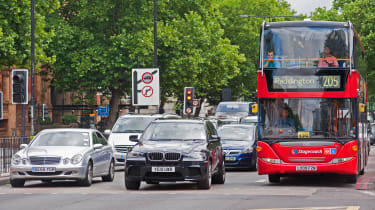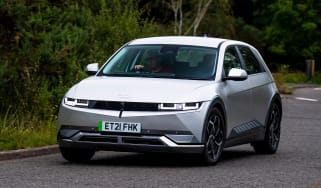Low Traffic Neighbourhoods continue to make money despite controversies
One council received £2million in fines from a single LTN in four months, with residents complaining of increased congestion

Low Traffic Neighbourhoods (LTNs) – which ban cars from entering certain residential streets in urban areas – are continuing to rake in money for councils, despite long-running controversy.
Haringey Council in London issued 60,000 penalty charge notices to drivers who entered three LTNs between September and December 2022, The Daily Telegraph reported, resulting in revenue of nearly £2million in four months.
Meanwhile, residents of Tottenham contacted their MP – Labour’s David Lammy – to complain that LTNs in the area were increasing congestion. Lammy called for a review of the schemes.
Another area of London – Dulwich Village – also made headlines over LTNs. According to The Daily Mail, disability campaigners asked the local authority if Blue Badge holders could be given an exemption from LTNs in the area, which have been in place since the first Covid lockdown. The councillor responsible for the scheme was reportedly angry at the suggestion, accusing two campaigners of “mansplaining” when they presented a petition from 600 residents.
Outside of London, resistance to LTNs has been even more fierce. The Oxford Mail reported the case of a street in east Oxford where violence broke out between residents disagreeing about an LTN, with the police having to get involved.

LTNs came about at the height of the Covid-19 pandemic, when the Government launched a £250million ‘Emergency Active Travel Fund’ for councils to create schemes that encouraged walking and cycling.
Local authorities across the country implemented these schemes in towns and cities, physically closing residential roads off with bollards or planters, as well as using cameras to fine motorists who attempted to drive through.
Although the schemes were often popular with those living on residential streets who benefitted from reduced traffic, congestion increased on major urban roads. Residents of those streets – typically less financially well off – were hit with higher levels of noise and pollution.
Other issues emerged, such as emergency services being unable to reach residents because of blocked routes. Controversy over the schemes grew as time went on, with many being reversed and millions of pounds of taxpayer money being wasted.
In October 2022, the Department for Transport (DfT) finally admitted that the official data used to justify the schemes had actually been false.
A DfT report entitled ‘Minor Road Traffic Estimates’ suggested traffic on minor roads had increased by 60 per cent in London between 2009 and 2019, and by 72 per cent on the smallest roads in the capital.
A technical review of this report, however, revealed there was no increase in London’s traffic over the decade, while miles driven on minor roads across Britain increased by just 10 per cent over 10 years, rather than the 26 per cent suggested by the report.
Do you live in a Low Traffic Neighbourhood? Tell us about your experience in the comments section below...
Find a car with the experts









